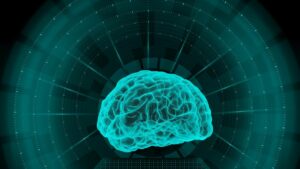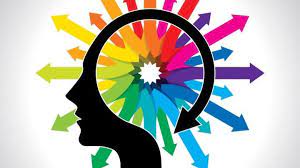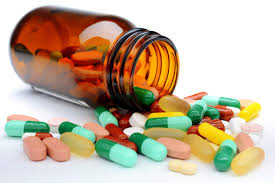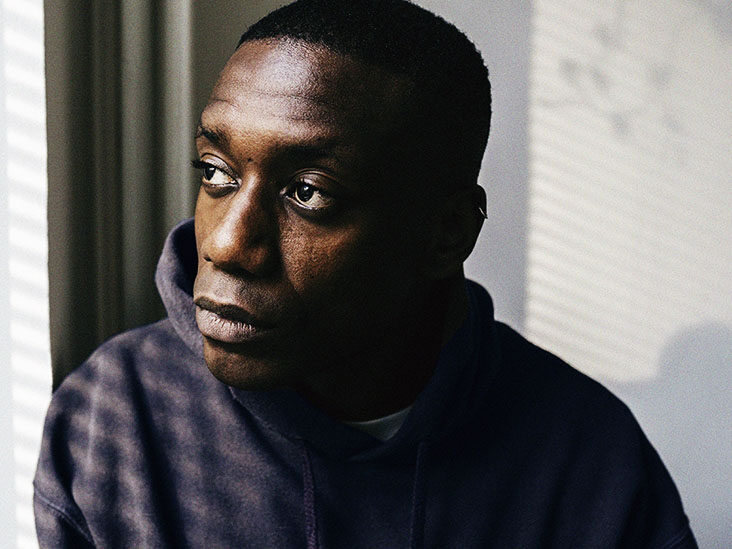Depression is a serious mental illness that can cause negative thoughts and feelings that can impact a person’s daily life. Depression can be treated with medication and therapy, but sometimes people don’t respond to treatment. This is known as treatment-resistant depression. Treatment-resistant depression is a challenge for both the person with the disorder and their loved ones. In this blog post, we will discuss what you need to know about treatment-resistant depression!
Contents
What Is Treatment-Resistant Depression?
 Treatment-resistant depression is defined as not responding to two different types of antidepressant medications. The first type is a selective serotonin reuptake inhibitor (SSRI), while the second type is a serotonin and norepinephrine reuptake inhibitor (SNRI).
Treatment-resistant depression is defined as not responding to two different types of antidepressant medications. The first type is a selective serotonin reuptake inhibitor (SSRI), while the second type is a serotonin and norepinephrine reuptake inhibitor (SNRI).
Treatment-resistant depression can be extremely frustrating, not only for the person suffering from it but also for their loved ones. In simple words, it is the condition where currently available treatments do not work.
It is important to understand that treatment-resistant depression is different from major depressive disorder (MDD). MDD is the diagnosis given when a person experiences a depressed mood for at least two weeks. Treatment-resistant depression, on the other hand, refers to people who have not responded to treatment despite trying multiple different medications.
According to studies, this type of depression affects about one-third of people with major depressive disorder. In other words, if you have been diagnosed with MDD, there is a 33% chance that your depression will not respond to treatment. So, it is important to be aware of this possibility and be prepared for it.
What Are Symptoms Of Treatment-Resistant Depression?
There are a number of symptoms that are associated with treatment-resistant depression. These include:
- Feeling sad or empty most of the time
- Loss of interest in activities that used to be enjoyable
- Significant weight loss or gain
- Sleeping too much or not being able to sleep
- Fatigue or low energy levels
- Feelings of worthlessness or guilt
- Difficulty concentrating or making decisions
- Thoughts of death or suicide
These symptoms can be really debilitating and make it hard to function in day-to-day life. More often, it is important to seek professional help when dealing with treatment-resistant depression. Because this type of depression is more difficult to treat, it’s important to work with a mental health professional who can develop a treatment plan that is specifically tailored to your needs.
Moreover, you should understand that treatment for this type of depression will not be a “quick fix.” It is important to be patient and work with your mental health professional to find the best course of treatment for you.
What Are The Possible Causes?
 There are several possible causes of treatment-resistant depression. Let’s explore a few of the most common ones.
There are several possible causes of treatment-resistant depression. Let’s explore a few of the most common ones.
Incorrect diagnosis
This is one of the most common causes of treatment-resistant depression. It’s estimated that around 20% of people who are diagnosed with depression are actually misdiagnosed. This is often because depression can mimic other conditions, such as anxiety disorders, thyroid problems, and sleep disorders.
If you’re not properly diagnosed, you won’t receive the proper treatment. In fact, you may receive treatment that makes your symptoms worse. This is why it’s so important to see a qualified mental health professional who can accurately diagnose your condition.
Side effects of medications
Another common cause of treatment-resistant depression is the side effects of medications. Many antidepressants can cause side effects, such as weight gain, sexual dysfunction, and fatigue. These side effects can be so severe that they outweigh the benefits of the medication.
It’s also possible to develop a tolerance to medications, which means they become less effective over time. This is one of the reasons why it’s important to work with a mental health professional to find the right medication for you.
Underlying medical conditions
There are some medical conditions that can cause or contribute to depression. These include:
- Thyroid problems
- Anemia
- Sleep disorders
- Vitamin D deficiency
If you have one of these conditions, it’s important to get treatment for it. Treating the underlying condition can often improve your depression symptoms.
Psychological factors
 There are also some psychological factors that can contribute to treatment-resistant depression. These include personality traits, such as perfectionism and negative thinking. If you have these traits, you may need to learn how to manage them in order to improve your depression symptoms.
There are also some psychological factors that can contribute to treatment-resistant depression. These include personality traits, such as perfectionism and negative thinking. If you have these traits, you may need to learn how to manage them in order to improve your depression symptoms.
More often, psychological factors are really a result of the way you’ve been coping with your depression. If you’ve been using unhealthy coping mechanisms, such as self-medicating with drugs or alcohol, it’s likely that your depression will become worse over time.
These conditions can all cause symptoms of depression. If you’ve been diagnosed with a medical condition and are also experiencing depression. It’s important to talk to your doctor about the possibility that your condition is causing your depression.
How It Is Diagnosed?
The diagnosis of treatment-resistant depression is made when a person has not responded to at least two different forms of treatment for their depression. The first step in diagnosis is usually to rule out any other possible causes for the person’s symptoms. Once other causes have been ruled out, the next step is to track the person’s response to different types of treatments.
Moreover, the diagnosis is been made with the help of many different factors like:
- the type of depression
- its severity
- how long the person has been dealing with depression
- any other health issues the person may have
You should understand that a professional will take all of these different factors into account when making a diagnosis. Also, the diagnosis can be made even if the person has only tried one type of treatment, but it did not work.
If you need proper treatment then it is important to get the right diagnosis. Once you have been diagnosed with treatment-resistant depression, there are a few different options available to you. Treatment-resistant depression is a difficult condition to deal with, but it is important to remember that you are not alone.
How Treatment-Resistant Depression Is Treated?
 The treatment options for people with treatment-resistant depression are similar to those for people with other types of depression. The main difference is that the treatments may need to be tried at different doses or combinations before an effective one is found.
The treatment options for people with treatment-resistant depression are similar to those for people with other types of depression. The main difference is that the treatments may need to be tried at different doses or combinations before an effective one is found.
There are a number of different types of treatment options that can be effective for treatment-resistant depression, including:
Psychotherapy
This option can be very helpful in teaching people with treatment-resistant depression how to better cope with their condition. It can also help them identify and change any negative thinking patterns that may be contributing to their depression. There are several different types of psychotherapy that can be effective, including:
Cognitive-behavioral therapy (CBT)
It focuses on helping people change their negative thinking patterns and behaviors. It has been shown to be effective in treating a number of different mental health conditions, including treatment-resistant depression.
Interpersonal therapy (IPT)
IPT is a type of psychotherapy that focuses on helping people improve their relationships with others. It can be an effective treatment for people with depression who have difficulty in their personal relationships.
Psychodynamic therapy
This type of therapy focuses on helping people understand and work through their past experiences. It can be helpful for people with depression who have a history of trauma or abuse. The aim of this therapy is to help people understand how their past experiences are affecting their present life.
These therapies are just a few of the many different types of treatment that can be effective for treatment-resistant depression. It’s important to work with a mental health professional to find the best treatment option for you.
Medication
 There are a number of different types of medication that can be effective in treating treatment-resistant depression. These include:
There are a number of different types of medication that can be effective in treating treatment-resistant depression. These include:
- Monoamine oxidase inhibitors (MAOIs)
- Tricyclic antidepressants (TCAs)
- Selective serotonin reuptake inhibitors (SSRIs)
- Serotonin and norepinephrine reuptake inhibitors (SNRIs)
- Atypical antipsychotics
Each of these medication classes comes with its own potential side effects. For example, MAOIs can cause dangerously high blood pressure when taken with certain other medications or foods. TCAs can be more likely to cause drowsiness, weight gain, and dry mouth than other types of antidepressants. SSRIs may cause sexual side effects such as decreased libido or difficulty achieving orgasm.
It’s important to work with a psychiatrist or other mental health professional to find the right medication for you. They can help you weigh the risks and benefits of each type of medication and make sure that you’re taking the lowest effective dose.
You may need to try several different medications before finding one that works for you. Because this treatment-resistant depression is already difficult to treat, this process can be even more frustrating. It’s important to remain hopeful and keep working with your mental health professional to find the best possible treatment for you.
Herbal supplements
As medications can be costly and have many side effects, some people with treatment-resistant depression choose to try herbal supplements instead. There is some evidence that St. John’s Wort may be effective in treating mild to moderate depression. But it should not be used if you are also taking other medications, as it can interfere with their effectiveness. Some of the common herbal supplements are:
Ginkgo Biloba: This supplement is derived from the Ginkgo biloba tree. It is commonly taken to improve memory, but there is some evidence that it may also help with depression.
Bacopa Monnieri: This herb is native to India and has been used in traditional Ayurvedic medicine for centuries. It is sometimes taken as a memory enhancer, but there is also some evidence that it may help with depression.
Rhodiola Rosea: This herb is native to Europe and Asia. It has been traditionally used to help with fatigue and stress. Some studies have shown that it may also be effective in treating depression.
These can be found in most health food stores. If you are considering taking any of these supplements, it is important to speak with your doctor first, as they can interact with other medications you may be taking.
Acupuncture
If medications are not working to improve your depression symptoms, you may want to consider trying acupuncture. This centuries-old Chinese practice involves placing thin needles into specific points on the body. Some people find that it can help relieve pain and improve mood.
Acupuncture is generally considered safe when performed by a trained professional. However, there is a small risk of bleeding or bruising at the needle site. If you’re interested in trying acupuncture, be sure to find a licensed acupuncturist in your area. You can also ask your doctor for a referral.
Other treatment options
 There are other treatment options available for people who suffer from treatment-resistant depression. These include:
There are other treatment options available for people who suffer from treatment-resistant depression. These include:
- Transcranial magnetic stimulation (TMS): This non-invasive procedure uses magnetic fields to stimulate certain areas of the brain that are thought to be linked to depression.
- Vagus nerve stimulation (VNS): This treatment involves surgically implanting a device that sends electrical impulses to the vagus nerve, which is thought to be involved in mood regulation.
- Ketamine infusion therapy: This treatment uses a low dose of the anesthetic ketamine, which has been shown to have antidepressant effects.
- Deep brain stimulation (DBS): This treatment involves surgically implanting a device that sends electrical impulses to specific areas of the brain involved in mood regulation.
While these treatments may be effective for some people, it is important to remember that they are not without risks and side effects. Be sure to discuss all potential risks and benefits with your doctor before starting any new treatment.
If you are struggling with treatment-resistant depression, know that you are not alone. There are many resources available to help you find the support and treatment you need. Talk to your doctor about what options may be right for you. Remember, you are not alone in this fight.
Conclusion
To conclude, treatment-resistant depression is a serious mental illness that should not be taken lightly. While there are many effective treatments available, not all of them work for everyone. If you have tried multiple treatments without success, don’t give up hope—there are still options out there for you.
For more information, please contact MantraCare. Depression is a mental illness characterized by persistent feelings of sadness, hopelessness, and loss of interest in daily activities. If you have any queries regarding Online Depression Counseling experienced therapists at MantraCare can help: Book a trial Depression Therapy session


